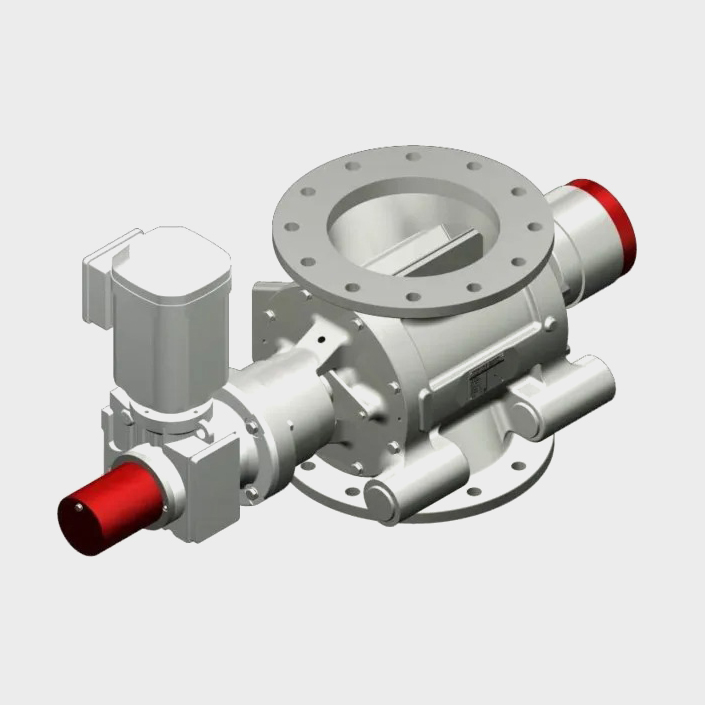Rotary Valve
At Invoit Plast Machinery Pvt. Ltd., we specialize in designing and manufacturing high-performance Rotary Valves that provide efficient material flow control in industrial applications. Our rotary valves are widely used in bulk material handling, dust collection, pneumatic conveying, and metering processes. Designed for precision, durability, and reliability, our valves ensure a consistent flow rate, preventing issues such as jamming, leakage, or material degradation.
Whether used in pharmaceutical, chemical, food, plastics, construction, recycling, or agriculture industries, our rotary valves enhance process efficiency, reduce downtime, and improve safety.
What is a Rotary Valve?
A Rotary Valve is a mechanical device used to regulate, meter, and control the flow of bulk materials or air between different chambers. It operates by rotating a passage in a transverse plug, allowing material to pass through while maintaining a consistent pressure differential.


